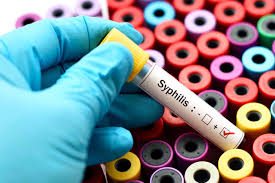In response to a concerning surge in syphilis cases among newborns in the United States, the American College of Obstetricians and Gynecologists (ACOG) has issued updated guidelines recommending increased screening for all pregnant patients. The new guidance, announced on Thursday, advocates for three screenings throughout pregnancy to mitigate the risk of congenital syphilis, a preventable condition that has seen a troubling rise in incidence over the past decade.
A Call to Action: Preventing Congenital Syphilis
With congenital syphilis cases on the rise, healthcare professionals are sounding the alarm on the urgent need for enhanced screening measures to protect maternal and infant health. Dr. Laura Riley, Chair of the Department of Obstetrics and Gynecology at Weill Cornell Medicine and a key contributor to the updated guidance, emphasized the gravity of the situation, stating, “The cases of congenital syphilis are definitely climbing, and they’ve been climbing over the last 10 years. And it’s completely preventable … It’s unacceptable.”
Strengthening Screening Protocols
Under the new recommendations, all pregnant patients are advised to undergo syphilis screening three times during pregnancy: at the initial prenatal visit, during the third trimester, and at the time of birth. This proactive approach aims to identify cases of syphilis early in pregnancy, enabling timely intervention and treatment to safeguard both maternal and fetal health.
Moving Beyond Risk-Based Screening
Historically, syphilis screening during pregnancy has been guided by risk-based criteria, targeting individuals deemed at high risk of infection or residing in communities with elevated syphilis rates. However, Dr. Riley emphasized the limitations of this approach, asserting that it often results in missed diagnoses. The shift towards universal screening reflects a concerted effort to broaden access to testing and prevent cases from slipping through the cracks.
Alarming Trends Prompt Action
The urgency of expanded syphilis screening measures is underscored by recent data revealing a concerning uptick in congenital syphilis cases. According to the Centers for Disease Control and Prevention (CDC), over 3,700 babies were born with congenital syphilis in 2022, marking the highest incidence in over three decades. These troubling statistics have prompted calls for intensified prevention efforts, including comprehensive screening protocols aimed at early detection and intervention.
Embracing Early Intervention
Syphilis screening, conducted through a simple blood test, serves as a critical tool in the fight against congenital syphilis, enabling healthcare providers to identify and treat affected individuals promptly. By adopting a proactive approach to screening and embracing evidence-based interventions, clinicians are poised to mitigate the impact of syphilis on maternal and infant health, ultimately working towards a future free from preventable disease transmission.











